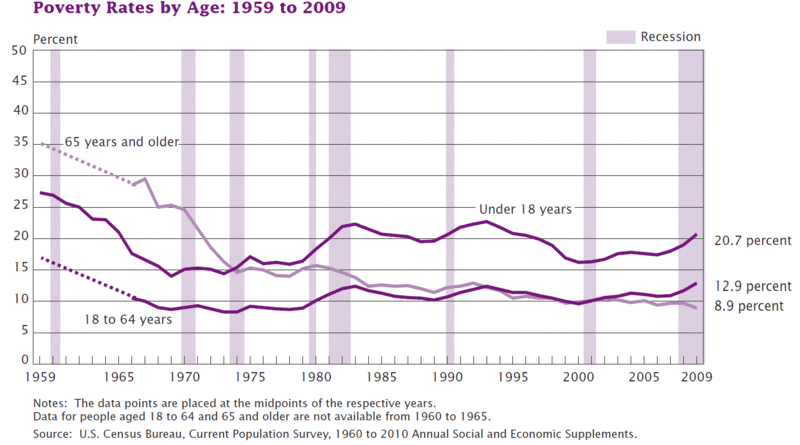14 Oct The inheritance the “Entitlement Generation” is not entitled to
 “How do I love (bankrupt) thee? Let me count the ways.”
“How do I love (bankrupt) thee? Let me count the ways.”
This election year it’s hard not to take note of all the various ways in which the next generation is screwed. Younger cohorts will struggle with student loans, possibly endure continued high unemployment rates, foot most of the bill from the national deficit and suffer the effects of a national economy that has paid out more than it has taken in over a long time. The Z’ers, or Homelanders, see their grown up sisters and brothers test their wingspan only to return back to the safety of parental den when things go wrong. They are advised that an expensive college degree is the only means to a comfortable future, yet that there are no guarantees for anything anymore. One would think in a time when individuals feel the effects of a troubled economy family bonds grow stronger. And they do. Many parents gladly open up their homes to boomeranging grown children and quarterback them each time they test their employment muscles in the slow job market. But what the long-term financial security? If the younger generations are going to be held back for decades by the locked doors they meet now won’t family assets once again gain importance as a source of income? If neither a college degree nor a mortgage seems like a good investment you should at least be able to look forward to your fair share of the family estate. Right?
Wrong. A survey carried out by TD Ameritrade has identified a gap between the percentage of adolescents expecting inheritance and the portion of parents who actually intend to bequeath assets to their offspring. Of the surveyed adolescents about 40% believe they will receive inheritance from their elders while only 16% of parents plan to leave any earthly assets to their children at all.
It is interesting to note that in 2007 the ratio is reverse. In other words, the number of people who thought they would inherit was much lower than the number of those who expected to pass their assets over to their children. But this is not because fewer young people expected to inherit, that number is remarkable stable at 40 %. The difference is in the number of people who expect to have enough wealth to transfer to the next generation, which in contrast to the meager 16% figure in the 2011-survey was as high as 72% of Americans in 2007 before the recession.
Of course, inheritance is probably not the first thing on your mind when you’re about to foreclose on your house or worry about vanishing retirement savings. And with increasing healthcare costs and longer life spans, which parent can afford to think about the financial future of a generation who has long lives ahead of them to save up?
Hard economic times makes it difficult not to consume the family’s nest egg, let alone replace the eggs that are gone. Even if the boomers have grown up with opportunities with unprecedented economic growth and yet managed to build a mountain of debt for the next generation one can hardly blame them if they are just trying to survive the long final life stage with relative comfort.
But its not their choices given the hard realities hard realities that bugs me the most, but what seems to be a lackluster attitude towards the next generation’s financial security. Research show that only 2% of parents think that leaving their offspring an inheritance is a primary financial goal. And according to an Allianz study, the oldest generation, or the parents of Baby Boomers, feel less inclined to pass on an inheritance than parents did in the past. In turn only 14% of Boomers feel that they owe their children anything at all.
Is this attitude an indication that parent generations feel that their children are poor financial managers or already too spoiled? Has the false perception of an ipod-wearing, mall shopping “entitlement generation” trickled into our intergenerational mindset to the extent where older generations now feel the younger are somehow less deserving?
I think it is important to keep in mind that, although the economy has been getting worse for most people, the oldest generations are the ones that have suffered the least. Trends from U.S. Census Bureau show that economic poverty has decreased most significantly for the older age brackets compared to the poverty distribution among younger cohorts, for whom it is growing.  In fact there is a very clear relationship between age and wealth in this country with the Silent generation being the undisputed winners and the youngest generations the losers. As shown in the graph, poverty among children is about almost two and a half times as high for children under 18 as it is for people over 65, whereas 50 years ago elderly people were 20% more likely than children to be poor. In fact the only generation who lowered their poverty level after the last financial crisis in 2008 seems to be the Silent generation, or the 65+ group. And that is not even counting in who the national deficit will change the playing field for the next generation for decades to come. According to an analysis by the Pew Research Center the median net worth of households headed by someone 65 or older is $170,494, 42 percent higher than in 1984, while the median net worth for younger-age households is $3,662, down 68 percent from a quarter century ago.
In fact there is a very clear relationship between age and wealth in this country with the Silent generation being the undisputed winners and the youngest generations the losers. As shown in the graph, poverty among children is about almost two and a half times as high for children under 18 as it is for people over 65, whereas 50 years ago elderly people were 20% more likely than children to be poor. In fact the only generation who lowered their poverty level after the last financial crisis in 2008 seems to be the Silent generation, or the 65+ group. And that is not even counting in who the national deficit will change the playing field for the next generation for decades to come. According to an analysis by the Pew Research Center the median net worth of households headed by someone 65 or older is $170,494, 42 percent higher than in 1984, while the median net worth for younger-age households is $3,662, down 68 percent from a quarter century ago.
This doesn’t mean that that all parents who can’t afford to pass on their earthly assets to their children are greedy egomaniacs of course. Nor does it mean that you won’t find examples of illusionary youngsters squandering away their babysitting fees on luxury items they can’t afford. But blaming teenagers for not saving for retirement? Or hoping that a little more than their family’s heirlooms will help compensate for the Social Security and Medicare they might pay into, but never receive? Are these the signs of having “a sense of entitlement” or being less responsible than the generations before them?
Take a look on how the Ameritrade study was covered on CNBS last month.
First, Generation Z is typically thought of as the generation that was born after 1995, somewhat overlapping the youngest of the Millennial generation. The oldest member of this generation is 17 years old. The Ameritrade respondents are between 13 and 22. So any attempt at measuring attitudes towards financial planning is destined to reveal some degree of adolescent immaturity. In fact I was pretty surprised by the level of responsibility the younger respondent reveal in the rest of the study. Secondly, despite the obvious subtitle “Generation Z”, panel members keep referring to encounters at college campuses and to the many 30-year-olds they met who never attended a job interview. In my opinion there really is a difference between a 17-year-old and a 30-year-old! And at the same token they refer to statistics that show Gen X’ers and Gen Y’ers saving more for retirement than the Boomers do – or more than what this new “Entitlement Generation Z’ seems to want to do. Remember when it was Generation Y who was labeled the Entitlement Generation? About five or eight months ago? It seems like the age discriminating “entitlement” stigma is circulating faster than the age cohorts themselves now!
Take what you want from this. I think no matter where you stand politically, whether you blame the low taxes for the rich or unsustainable entitlement programs, there is a huge intergenerational disconnect out there. I know a legacy is much more than physical assets. What people remember and miss when older relatives pass away can’t and shouldn’t be measured in economic terms. Also there is clearly a hidden class dynamic going on here with the well-to-do being able to live comfortable lives and in addition save affluent leftovers on to their children. So besides the implied morbidity of this topic, indirectly gauging the economic accomplishments of relatives can make the subject extra uncomfortable. But still it is a topic with deep roots into agrarian societies and a conversation parents have encountered for centuries. There might have been disagreements about who is going to take over the family farm, but never that inheritance in and by itself is unfair to the parents. Quite opposite, I think reverse mortgages and Cadillac health insurance plans is a fairly new concept and something our great-grandfathers wouldn’t consider if it could negatively affect the next generation’s upward mobility potential. In fact I suspect that discussing the benefactor aspect of the parental role didn’t use to be a controversial issue at all.
Images: Flickr, U.S. Census Bureau, YouTube


Sorry, the comment form is closed at this time.